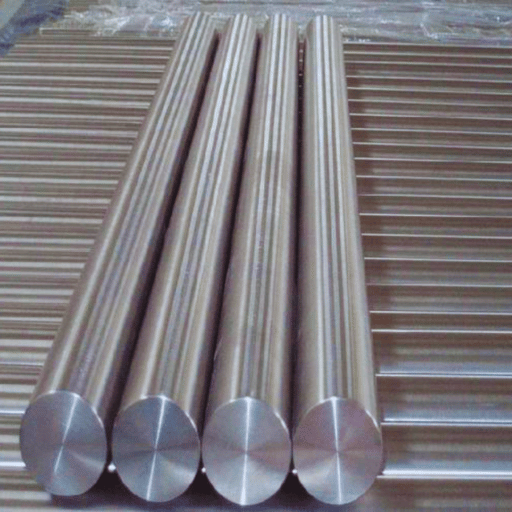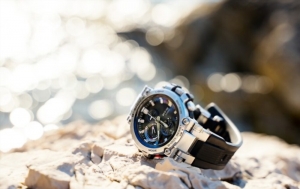Monel 400 is a nickel-copper alloy known for its exceptional resistance to corrosion and high temperatures. It is widely used in various industries, including marine, chemical processing, and oil and gas. This article will explore how to ensure the optimal performance of Monel 400 bands in your applications, focusing on their properties, maintenance, and best practices for use.
Understanding Monel 400
Composition and Properties
Monel 400 consists primarily of nickel (63%) and copper (28%), with small amounts of iron, manganese, carbon, and silicon. This unique composition gives Monel 400 its remarkable properties, making it a preferred choice in demanding environments.
- Corrosion Resistance: Monel 400 is highly resistant to corrosion in a variety of environments, including seawater, acids, and alkalis. This property is particularly beneficial in marine applications where exposure to saltwater can lead to rapid degradation of other materials. The alloy's ability to withstand pitting and crevice corrosion ensures longevity and reliability in harsh conditions.
- High Strength: The alloy maintains its strength at elevated temperatures, making it suitable for high-temperature applications. This characteristic is crucial in industries such as oil and gas, where equipment often operates under extreme conditions. Monel 400's strength allows it to perform effectively without deforming or failing, even when subjected to high pressures.
- Ductility: Monel 400 can be easily formed and welded, allowing for versatile applications in various industries. Its ductility means that it can be shaped into complex forms without cracking, which is essential for creating custom components that fit specific operational needs. This flexibility in manufacturing contributes to its widespread use in specialized applications.
Applications of Monel 400 Bands
Monel 400 bands are used in numerous applications, including:
- Marine Engineering: Due to its resistance to seawater corrosion, Monel 400 is ideal for marine applications such as propeller shafts and pump components. The alloy's durability ensures that marine equipment can withstand the harsh conditions of ocean environments, reducing the need for frequent replacements and maintenance.
- Chemical Processing: The alloy's ability to withstand harsh chemicals makes it suitable for valves, fittings, and piping in chemical plants. In these settings, Monel 400 bands help maintain the integrity of systems that handle corrosive substances, ensuring safety and efficiency in chemical production processes.
- Oil and Gas Industry: Monel 400 is used in offshore drilling rigs and pipelines due to its strength and corrosion resistance. The oil and gas sector often faces challenges related to high pressures and corrosive environments, making Monel 400 an ideal material for critical components that must perform reliably over time.

Ensuring Optimal Performance
To ensure the optimal performance of Monel 400 bands, several factors must be considered, including material selection, installation, and maintenance.
1. Material Selection
Choosing the right grade of Monel 400 is crucial for optimal performance. Factors to consider include:
- Environmental Conditions: Assess the specific environmental conditions where the bands will be used. For example, high chloride environments may require additional protective measures. Understanding the specific challenges posed by the operating environment allows for better material selection and application design.
- Mechanical Requirements: Determine the mechanical properties needed for your application, such as tensile strength and ductility. Different applications may demand varying levels of performance, so it is essential to match the material properties with the operational requirements to avoid failures.
2. Proper Installation
The installation process can significantly impact the performance of Monel 400 bands. Follow these guidelines:
- Surface Preparation: Ensure that surfaces are clean and free from contaminants before installation. This helps prevent corrosion and ensures a proper seal. Proper surface preparation is critical, as contaminants can lead to weak points that may fail under stress.
- Correct Fastening: Use appropriate fasteners and ensure they are tightened to the manufacturer's specifications. Over-tightening can lead to stress fractures, while under-tightening can result in leaks. Following the recommended installation procedures helps maintain the integrity of the assembly and prevents premature failure.
3. Regular Maintenance
Regular maintenance is essential to prolong the life of Monel 400 bands. Consider the following practices:
- Inspection: Regularly inspect the bands for signs of wear, corrosion, or damage. Early detection can prevent costly repairs. Establishing a routine inspection schedule allows for timely interventions that can extend the lifespan of the components.
- Cleaning: Clean the bands periodically to remove any buildup of salt, dirt, or chemicals that could lead to corrosion. Regular cleaning helps maintain the alloy's protective properties and ensures optimal performance in its intended application.
- Lubrication: Apply appropriate lubricants to moving parts to reduce friction and wear. Proper lubrication minimizes the risk of mechanical failure and enhances the overall efficiency of the system.
4. Monitoring Performance
Implement a monitoring system to track the performance of Monel 400 bands in real-time. This can include:
- Temperature Monitoring: Keep track of temperature fluctuations that may affect the integrity of the bands. Monitoring temperature helps identify potential issues before they escalate, allowing for proactive maintenance.
- Pressure Monitoring: Monitor pressure levels to ensure they remain within safe operating limits. Pressure monitoring is crucial in applications where fluctuations can lead to catastrophic failures, ensuring that the system operates safely and efficiently.
Best Practices for Using Monel 400 Bands
1. Avoiding Stress Corrosion Cracking
Monel 400 is susceptible to stress corrosion cracking in certain environments. To mitigate this risk:
- Control Environmental Factors: Minimize exposure to high-stress conditions and aggressive environments. Understanding the specific conditions that can lead to stress corrosion cracking allows for better design and operational strategies.
- Use Proper Design: Ensure that the design of the application minimizes stress concentrations. Thoughtful design can significantly reduce the likelihood of failure due to stress corrosion, enhancing the reliability of the system.
2. Choosing the Right Coatings
In some cases, applying protective coatings can enhance the performance of Monel 400 bands. Consider:
- Corrosion-Resistant Coatings: These can provide an additional layer of protection against harsh environments. Coatings can significantly extend the life of Monel 400 bands by preventing direct exposure to corrosive agents.
- Thermal Barrier Coatings: If the bands are exposed to high temperatures, thermal barrier coatings can help maintain their integrity. These coatings can protect the underlying material from thermal degradation, ensuring consistent performance in high-temperature applications.
3. Training Personnel
Ensure that personnel involved in the installation and maintenance of Monel 400 bands are adequately trained. This includes:
- Understanding Material Properties: Training should cover the unique properties of Monel 400 and how they affect performance. Knowledgeable personnel can make informed decisions regarding installation and maintenance, reducing the risk of errors.
- Proper Handling Techniques: Personnel should be trained in the correct handling and installation techniques to prevent damage. Proper training ensures that the material is treated with care, minimizing the risk of introducing defects during installation.

Conclusion
Ensuring the optimal performance of Monel 400 bands in your applications requires careful consideration of material selection, installation practices, and regular maintenance. By following the guidelines outlined in this article, you can maximize the longevity and effectiveness of Monel 400 bands, ultimately leading to improved performance in your applications. The investment in proper practices not only enhances the reliability of your systems but also contributes to overall operational efficiency.
Frequently Asked Questions
1. What industries commonly use Monel 400 bands?
- Monel 400 bands are commonly used in marine engineering, chemical processing, and the oil and gas industry due to their corrosion resistance and high strength.
2. How can I prevent corrosion on Monel 400 bands?
- Regular cleaning, proper installation, and using protective coatings can help prevent corrosion on Monel 400 bands.
3. What are the mechanical properties of Monel 400?
- Monel 400 has high tensile strength, excellent ductility, and maintains its strength at elevated temperatures.
4. Can Monel 400 bands be welded?
- Yes, Monel 400 can be welded, but it requires specific techniques to avoid issues such as cracking.
5. What should I do if I notice wear on my Monel 400 bands?
- If you notice wear, inspect the bands thoroughly and consider replacing them if they show significant damage or corrosion.






